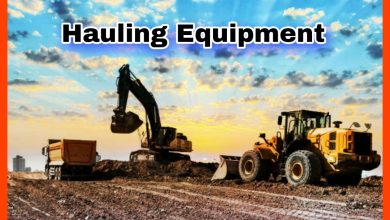
Used Heavy Equipment for Sale Your Ultimate Guide
When it comes to finding reliable and cost-effective used heavy equipment for sale, you’re embarking on a journey that requires both knowledge and a keen eye for detail. At our company, we understand the significance of acquiring heavy machinery that not only suits your project needs but also fits within your budget constraints. This comprehensive guide is designed to assist you in making informed decisions while searching for used heavy equipment, ensuring that you can carry out your operations efficiently and effectively.
1. Understanding Your Requirements
The first step in your journey to finding the perfect used heavy equipment is understanding your project’s requirements. Are you in the construction industry, agriculture, mining, or another field altogether? Determining the specific tasks and functions your equipment needs to perform is crucial in narrowing down your options. From bulldozers and excavators to cranes and loaders, identifying your exact needs will help you find equipment that aligns with your goals.2. Researching Trusted Dealers
When searching for used heavy equipment for sale, it’s paramount to work with reputable dealers. A simple online search can yield numerous options, but it’s essential to delve deeper. Look for dealers with a track record of providing quality machinery and transparent information about their products. Reading reviews and seeking recommendations from industry peers can also guide you toward trustworthy dealerships.3. Examining Equipment History
Before finalizing any purchase, it’s imperative to delve into the history of the equipment you’re interested in. This includes its maintenance records, usage history, any reported accidents or repairs, and whether it meets the necessary safety standards. A thorough examination of the equipment’s history will give you insights into its overall condition and potential longevity.4. Physical Inspection
While online research is convenient, nothing beats a physical inspection. Arrange to visit the equipment in person or hire a qualified technician to assess its current state. Pay close attention to the machinery’s wear and tear, engine condition, hydraulic systems, and structural integrity. This step is critical to ensure that you’re making an investment that will serve you well in the long run.5. Evaluating Pricing and Negotiation
Comparing prices from different dealers is essential in ensuring you’re getting a fair deal. Keep in mind that the cheapest option might not always be the best choice in terms of quality and reliability. Be prepared to negotiate with the dealer, but also be reasonable in your expectations. Finding the balance between cost and value is key.6. Warranty and After-Sales Support
When purchasing used heavy equipment, inquire about warranties and after-sales support. Reputable dealers often offer warranties on their products, giving you added peace of mind. Additionally, understanding the extent of after-sales support, including maintenance services and spare parts availability, is crucial for the long-term performance of your equipment.7. Financing Options
Investing in used heavy equipment is a significant financial decision. Explore the various financing options available to you. Some dealers may offer financing plans with favorable terms, allowing you to acquire the equipment you need without straining your immediate budget.8. Transport and Logistics
Transporting heavy equipment requires careful planning. Consider the logistics involved in moving the machinery from the dealer’s location to your project site. Factor in any additional costs and time constraints associated with transportation to ensure a seamless process.9. Environmental and Regulatory Compliance
Different industries have specific regulations governing the use of heavy equipment. Ensure that the equipment you’re purchasing complies with all relevant environmental and safety standards. Failing to do so could result in costly penalties and disruptions to your operations.10. Maintenance and Care
Once you’ve acquired your used heavy equipment, proper maintenance and care are essential to prolong its lifespan. Establish a regular maintenance schedule, perform routine inspections, and address any issues promptly to prevent minor problems from escalating into major repairs.Please wait 16 seconds
Generating... Please Wait!




